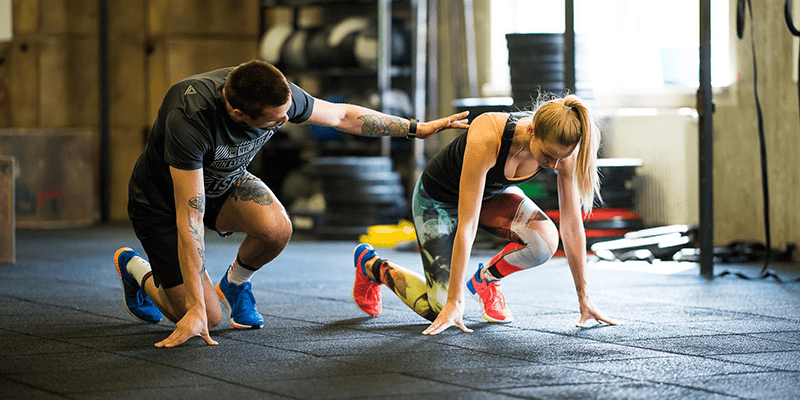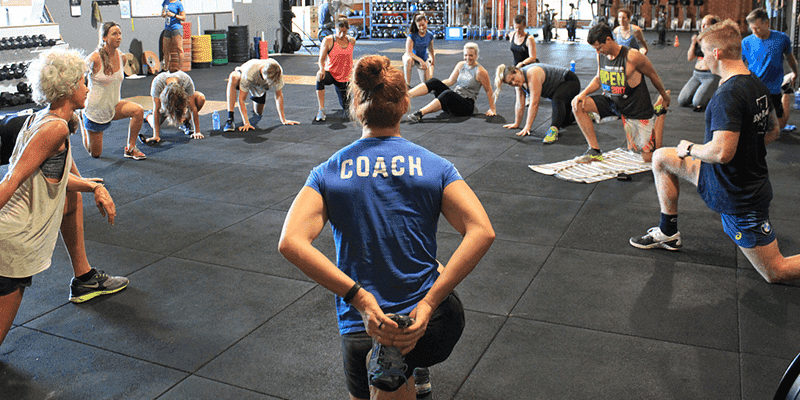I still remember the first time I coached an Olympic Weightlifting class. I was both very nervous and very excited. I love myself a snatch and I have always been very thorough at whatever I am doing.
To say that I know the minutia of the thing is an understatement. After a careful barbell warm-up, I asked my athletes to perform a set of muscle snatches at a very light weight–40% or less, I said. To my astonishment, when I looked at Jeremy, he had 45 lb plates on his bar and was easily muscle snatching them.
I immediately felt uncomfortable. “I cannot out lift this guy,” I thought. I felt insecure. It was not out of competitiveness; I feared Jeremy would not take my coaching seriously.
Fortunately, during that hour I worked with Jeremy on his first pull. His lifting got better, and his trust in me calmed all my insecurity. Years later when I started coaching my first high-calibre athlete, I felt the same way.
Some reflection and research made me realize I was having a little bit of impostor syndrome. Every new Level 1 CrossFit coach is familiar with this feeling. It expresses itself in a very simple question: “If I am not Tia-Clair, how can I coach, what do I know?” That question is fundamental and the answer will change the way you coach.
Get this: The job of the coach is not to be better than others. The job of the coach is to make others better.
In other words, the task of the coach is to be amazing at helping others maximize their potential. The task of being better than others is that of the competitive athlete.
 Source: Stevie D Photography
Source: Stevie D PhotographyNow, don’t get me wrong. You have to have a deep understanding of that which you are coaching. You have to be prepared and ready. That’s a given. It is hard to teach somebody to be efficient in their muscle-ups if you have never kipped.
But you don’t need to know it all or actually be an expert on every single aspect of the discipline. The best coaches have a team of experts to help them with the specifics. You don’t need to be the best athlete in the room, you just need to be the best coach.
What you DO need to know everything about is your athlete. What kind of learner is he/she? Why are they doing what they’re doing? What motivates them to keep going when it’s tough? In which contexts do they thrive? Or crumble?
The task is to help them be the best they can be. That requires a set of skills that are only tangentially related to your Snatch 1RM.
With that crucial information in mind, let me give you three characteristics for which every coach should strive, and which will ensure that your coaching has a truly meaningful impact.
Three Characteristics that Define a Great Coach
BUILD A RELATIONSHIP
Learn how to listen. Not just to what your athlete says, but to the way they move, the way they express themselves. Become a student of their behaviours, their movements, their emotional reactions.
Don’t solve their problems, instead, learn how to ask questions skillfully so that they will learn how to solve their own problems. An athlete who feels seen and heard is an athlete who will listen to you and hear your message.
BE ATHLETE-CENTRED
This is really not about you, my friend. This is about their goals and projects. The more you push your own agenda and the less autonomy you give your athlete, the more resistance you will generate in your athlete.
Instead of imposing your views, collaborate with your athlete. Empower them. Present your point of view, express your guidance, help them parse the information they are getting. And then let them decide.
LEAD BY EXAMPLE
Sending your athlete an email at 3:00 AM telling them about the importance of recovery and mobility will never work. The “do as I say” mentality will not cut it. Make sure your athlete knows your values and what matters to you. And then be true to those values.
Actively seek feedback. Let your athlete know you are always looking for potential points for improvement and your athlete will do the same.
These three characteristics are hard to implement. They are far away from the drill sergeant coach that bad movies have gotten us used to. Yet, they will create powerful results and powerful athletes.
Juan Acevedo, PhD, is an experienced Level 3 CrossFit Certified Trainer and Precision Nutrition Level 2 Coach. He is a humanist, destroyer of negative narratives, and constructor of positive change, and specialises in aligning the mindset, fitness, and nutrition habits of his athletes.
Find out more about him and his methods at Self Mastery Training or give him a follow on @selfmasterytraining.
Image Sources
- Sprinting: Stevie D Photography
- Coach and Class: Courtesy of CrossFit Ballina
